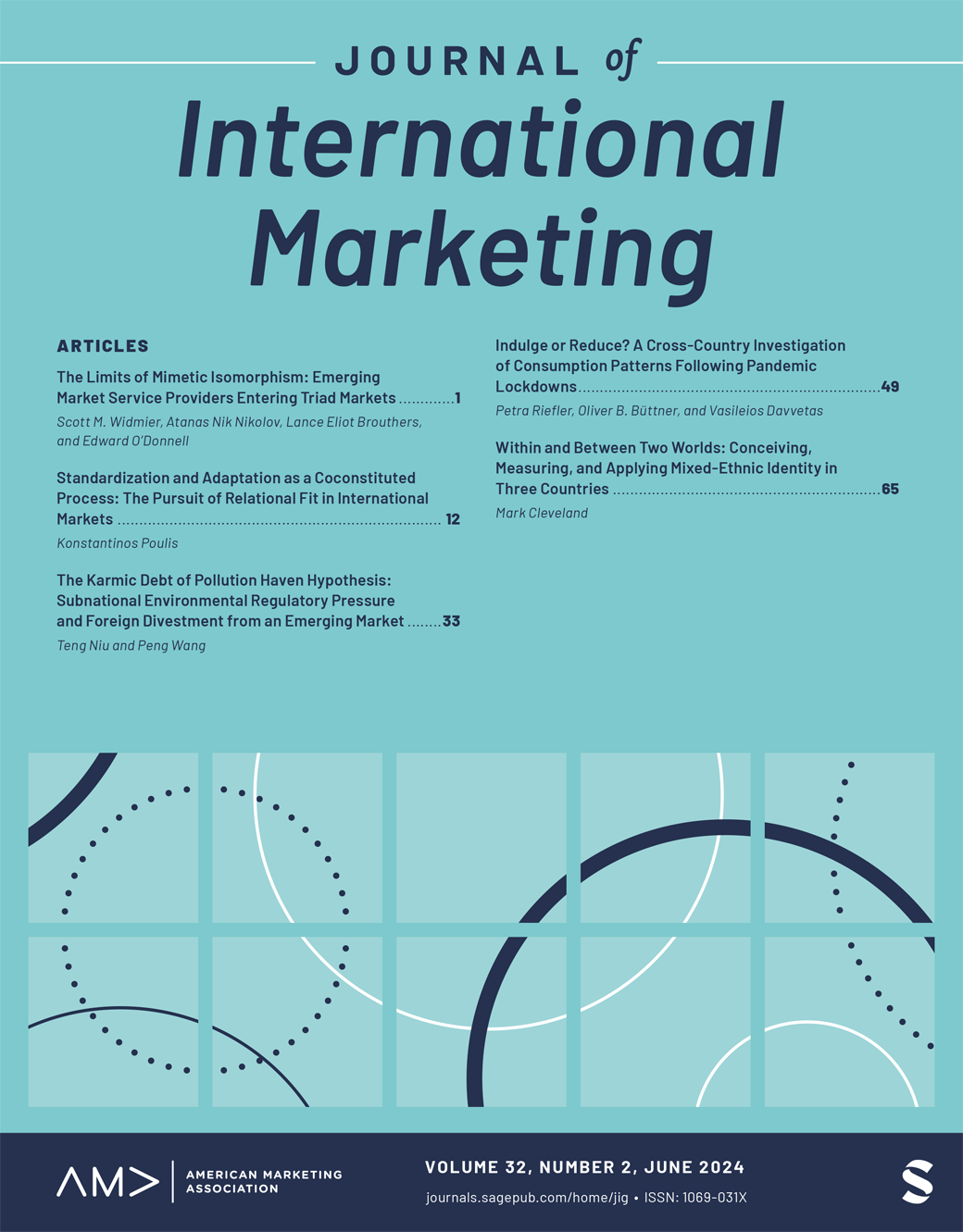COVID-19大流行期间不同文化的消费者储备
IF 4.9
2区 管理学
Q1 BUSINESS
引用次数: 25
摘要
2020年3月11日,世界卫生组织宣布COVID-19(冠状病毒)疫情为大流行。在接下来的几天里,媒体报道显示,消费者越来越多地囤积食品杂货和家庭用品。有趣的是,行为数据显示,这种储备在各国之间表现出相当大的异质性。在文化维度理论的基础上,作者认为这种异质性可以用国家的文化价值观来解释:在世界卫生组织宣布后,在居民表现出高度不确定性规避、低长期导向、低放纵和高度个人主义的国家,消费者囤积更为明显。作者利用谷歌的全球人口流动数据与国家层面的文化价值观、流行病应对政策和其他关键变量数据相匹配,证实了这些观点。因此,本研究报告整合了之前关于文化维度理论和消费者储备的文献,并提供了关于危机中的跨文化消费者行为的新的重要知识。此外,作者还为旨在预测或控制未来全球危机中的消费者库存以提高消费者福祉的国际政策制定者和业务经理提供了可操作的见解。本文章由计算机程序翻译,如有差异,请以英文原文为准。
Consumer Stockpiling Across Cultures During the COVID-19 Pandemic
On March 11, 2020, the World Health Organization declared the COVID-19 (coronavirus) outbreak a pandemic. In the following days, media reports showed that consumers increasingly stockpiled groceries and household supplies. Interestingly, behavioral data show that this stockpiling exhibited considerable heterogeneity across countries. Building on cultural dimension theory, the authors theorize that this heterogeneity can be explained by countries’ cultural values: consumer stockpiling after the World Health Organization's announcement was more pronounced in countries whose residents show high uncertainty avoidance, low long-term orientation, low indulgence, and high individualism. The authors confirm these propositions using global mobility data from Google matched with country-level data on cultural values, pandemic reaction policies, and other key variables. This research note thereby integrates the previously disconnected literature on cultural dimension theory and consumer stockpiling in general, as well as provides new and significant knowledge about cross-cultural consumer behavior in crises. Furthermore, the authors provide actionable insights for international policy makers and business managers who aim to predict or control consumer stockpiling in future global crises to enhance consumer well-being.
求助全文
通过发布文献求助,成功后即可免费获取论文全文。
去求助
来源期刊

Journal of International Marketing
BUSINESS-
CiteScore
8.70
自引率
17.20%
发文量
28
期刊介绍:
As the globalization of markets continues at a rapid pace, business practitioners and educators alike face the challenge of staying current with the developments. Marketing managers require a source of new information and insights on international business events. International marketing educators require a forum for disseminating their thoughts and research findings. Journal of International Marketing(JIM) is an international, peer-reviewed journal dedicated to advancing international marketing practice, research, and theory. Contributions addressing any aspect of international marketing management are published each quarter.
 求助内容:
求助内容: 应助结果提醒方式:
应助结果提醒方式:


